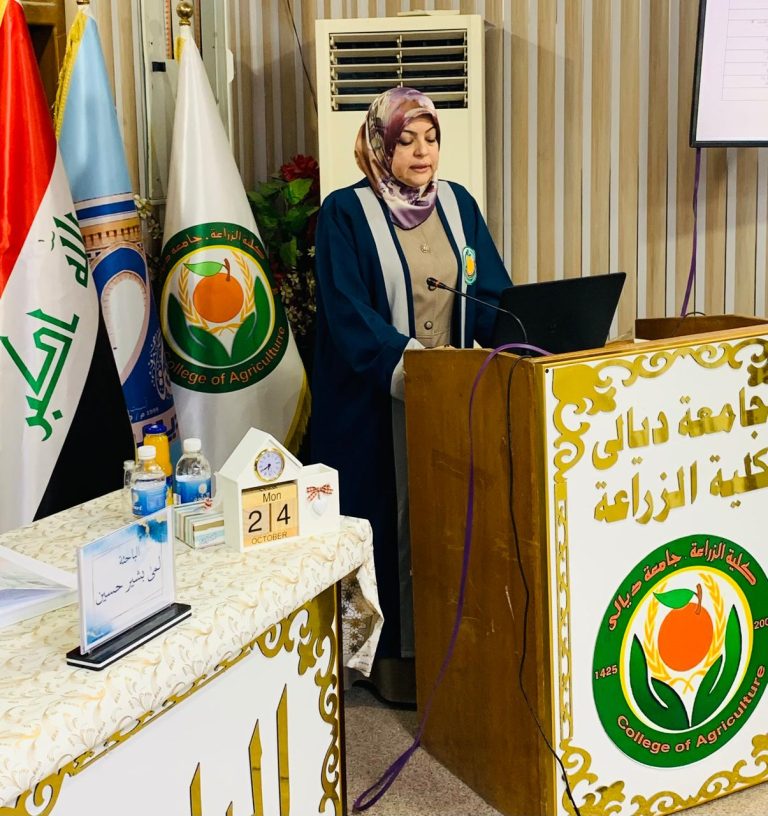A doctoral dissertation at the Faculty of Agriculture.

The College of Agriculture at the University of Diyala discussed a doctoral dissertation entitled The Effect of Spraying with Thidiazuron, Boron, and Tryptophan on Certain Growth Traits, as well as Quantitative, Qualitative, and Storage Characteristics of Apricot (Prunus armeniaca L.) Fruits. This study, presented by student Lama Bashir Hussein, sought to examine the impact of thidiazuron, boron, and tryptophan sprays in boosting productivity by increasing fruit set rates, reducing fruit drop, and enhancing the marketability of apricot fruits.
The study yielded several conclusions, including:
-
The DNA Sequence Marker technique demonstrated high efficiency in studying the genetic diversity among four local apricot cultivars, highlighting its potential utility in breeding and improvement programs.
-
Phenotypic analysis of the four cultivars showed that the Amousha cultivar was the most tolerant to low temperatures during the stone-hardening stage.
In the field experiment, applying thidiazuron at a concentration of 20 mg/L and boron at 100 mg/L as foliar sprays on apricot trees improved vegetative growth traits, such as leaf area, dry matter content, total chlorophyll, and leaf chemical characteristics. Additionally, it increased the fruit set rate, reduced fruit drop, and enhanced yield quality. Foliar spraying with the amino acid tryptophan at 100 mg/L also improved most vegetative and yield traits. Interactions between thidiazuron at 20 mg/L and boron at 100 mg/L enhanced most of the traits studied.
For the storage experiment, the field spraying treatment had a positive effect on maintaining fruit quality at the end of refrigerated storage. Immersing apricot fruits in calcium chloride and paracetamol solution yielded the best outcomes for fruit quality after 30 days of cold storage.
The study recommends:
-
Utilizing the DNA Sequence Marker technique to identify genetic variations among other apricot cultivars grown in Diyala Governorate.
-
Employing both phenotypic and molecular characterizations for accurate identification of cultivars, especially as some are beginning to deteriorate.
For the field experiment:
-
Applying foliar sprays of thidiazuron and boron in both autumn and spring, given their positive impact on growth and yield.
-
Investigating the use of other amino acids on apricot trees to assess their effect on the traits studied.
-
Studying the impact of these treatments on other apricot cultivars prone to fruit drop, to improve fruit set rate and reduce drop rate.
For the molecular experiment:
-
Assessing the effects of spraying with growth regulators, nutrients, and amino acids—individually or in combination—before harvest to determine their influence on stored fruit.
-
Exploring natural alternatives to chemical treatments for apricot fruits before storage, such as modern natural extracts, to avoid the negative health effects of chemical treatments.
-
Experimenting with different packaging methods for apricot fruits.








